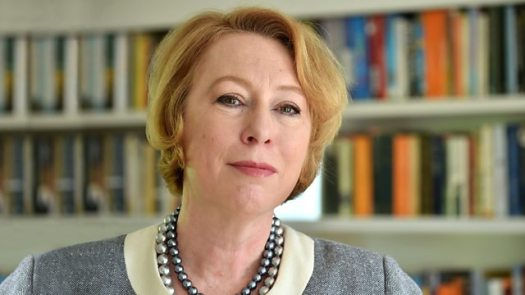Why every lawyer should listen to Prof Empson’s “Insecure Overachievers”
- Ciaran Fenton
- Oct 5, 2018
- 3 min read

In her BBC Radio 4 documentary, broadcast this week and available on BBC iPlayer, Prof Empson told us nothing new and everything new.
We know that the stress levels in professional services – and in legal services in particular – are unsustainable. I have seen it at close quarters over 15 years working with lawyers as leaders. Prof Empson’s stories and interviews are genuinely shocking, but won’t surprise any listener who knows that world.
What was new about Prof Empson’s programme is that she has moved the debate on, significantly, by tapping into the growing tolerance in the world of work for people making themselves vulnerable.
Moreover, what was riveting about this programme is that she – a former investment banker and strategy consultant turned academic – is a self-confessed “insecure overachiever” and speaks openly about her struggle.
And she manages to persuade “big names” in professional services to speak openly, frankly, and movingly about their experiences.
One story stands out: the managing partner who changed his shirt five times and pill-popped headache tablets all day due to the stress of an annual partners conference, who knew he was perceived as cool but was dying inside.
Prof Empson’s engagement with vulnerability – her own and others – is new and part of a growing trend. Several years ago a senior in-house lawyer-client gave me a copy of Brené Brown’s Daring Greatly, a book which explains how the courage to be vulnerable works and dispels the myth that it’s weakness. Her Ted Talk is, rightly, in the Top Ten. My lawyer-client spoke openly about his tendency to overachieve.
Stephen Fry, Alasdair Campbell, and Ed Balls – all high profile figures – dared to speak openly about their issues. Paul Gilbert, a former GC and leader of UK’s foremost leadership programme for in-house counsel, has written for many years about the problem of stress in the profession and, movingly, about his own experiences.
The courage of Prof Empson and these people to speak out does us all an excellent service. It has an impact much more significant than perhaps some realise. It gives others permission to do so too. I now speak openly to my clients about my own experiences, and they theirs. Our shared work is enriched.
The arguments from interviewees in the programme who argued against vulnerability were as chilling as they were predictable: “if-you-can’t-hack-it-get-out…and “slavery was abolished” no one is forcing you to do it….and clients expect it…”
The problem with these arguments is that although factually correct, they assume that everyone will persist with what Yuval Noah Harari calls in Sapiens the current “shared fiction” of the purpose of work in general, and the purpose of professional services in particular. Once we decide to change our shared purpose, all bets are off for the manipulators of “insecure overachievers”.
However, it hasn’t yet happened. And that explains, in part, the mystery of mostly zero disruption in legal services. There won’t be any substantive disruption in legal services, apart from technology-enabled change, unless and until more lawyers accept that vulnerability isn’t a weakness.
One step that might help this process, not addressed in Prof Empson’s programme but hopefully in a sequel, is an examination of what in their formative years has led to them becoming “insecure overachievers”.
This one aspect of the program has left me a little troubled. I’m uncomfortable with the coining of another new label – “insecure overachiever” – which some lawyers will use to self-flagellate and others as another secret elite badge of honour. I don’t believe this issue can be addressed without looking at the full arc of one’s life.
Pro Empson’s says in her closing words that although the feelings may diminish they “never go away…make your peace with them…recognise that you can be manipulated…channel it for you and not against you…your deepest fears may drive your wildest dreams.”
I don’t see it this way. For me, It’s not about making peace with the feelings or channelling them. It’s about making peace with their origin. Understanding what drove early overachieving decisions in your life and making a new decision. William Glasser calls this Decision and ReDecison.
Prof Empson keeps asking in the programme – who’s to blame? Well, whoever it is, it’s not she.





Comments